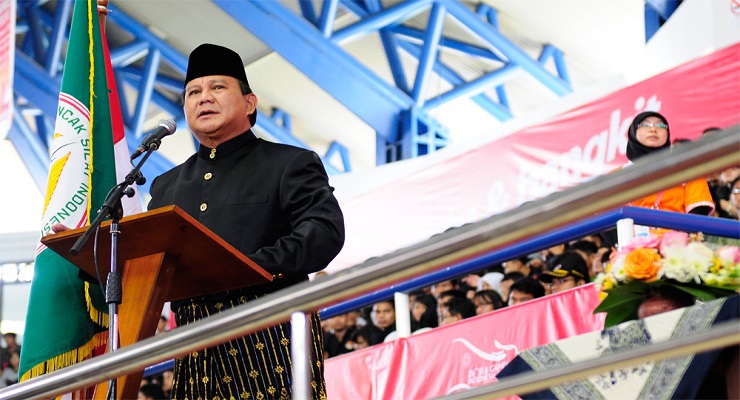
From Voice Of America
As Indonesia’s presidential candidate Prabowo Subianto stood on stage claiming a victory in this year’s general elections that few could believe, Sandiaga “Sandi” Uno, his running mate, watched on from behind, ashen faced and dour.
The image went viral on social media, highlighting a split between Prabowo and Sandiaga, who seemed at odds. According to all counts, apart from their own, they were defeated by the incumbent Joko “Jokowi” Widodo, who has claimed victory with 54 percent of the vote.
It’s a result Prabowo refuses to accept.
“Sandi didn’t look very happy at being beside him last night. That was a facial expression we have not seen on Sandi for the entire campaign,” said Greg Barton, Chair of Global Islamic Politics at the Alfred Deakin Institute for Citizenship and Globalization.
“Normally he’s full of energy and smiling, that’s his trademark. He looked like he was attending a funeral,” he said.
What followed was an uneasy night amid speculation that Prabowo would instigate mass rallies following Friday prayers, prompting an appeal from Police Chief General Tito Karnavian who told all parties to end the mobilization of supporters.
Troops were seen being deployed in Jakarta.
Instead of rallying on the streets, about 1,000 supporters gathered outside Prabowo’s home in central Jakarta, where he again refused to concede defeat, citing his own “quick poll result” – which has been widely discredited – and vowed to challenge the result through the courts.
“Well he certainly wants to get attention, of course he’s got a few weeks before the official results come out in which he can save face by these sort of stunts, but it looks increasingly silly,” Barton said.
Former president Susilo Bambang Yudhoyono also warned the post-election situation looked tense and could potentially could harm the country’s security and political life while urging his supporters “not to get involved in any act of violating Indonesia’s Constitution.”
In a letter to his Democratic Party, Yudhoyono said the real results were determine by the General Elections Commission, where counting supports Jokowi’s claim to the presidency.
But through it all Sandiaga, a successful businessman, emerged as a crowd favorite with his honesty and moderate views on Islam, acting as a counter-balance to Prabowo who has a long history of courting conservative Muslims.
“An Indonesian friend of mine said ‘Sandiaga is the son-in-law that every Indonesian mother wants’,” said Don Greenlees, a senior fellow with the Australian National University. “The big thing is can he find a coalition of parties or a party with sufficient support in its own right to back him.”
“He shapes up as a very good candidate for 2024, there’s no question that he has the ambition.”
As the voting continued, Jokowi was a substantial eight percentage points ahead of Prabowo but this was still below expectations when compared with the double-digit lead he held in the opinion polls during the campaign.
“Prabowo performed better than expected. He seems to have done best in the provinces that have the most pronounced Muslim identity. So the identity politics aspect of the election did bear out,” Kevin O’Rourke, an analyst with PT Reformasi Info Sastra, said.
He also said Sandiaga had emerged as a future political force.
“He has the asset base to finance another run. He has established a national profile and name recognition. But there’s also a few other considerations,” O’Rourke said.
“There’s going to be a few contenders for the presidency next time around, including perhaps Prabowo himself. The result yesterday may embolden him to make a third try, health permitting, and if so then questions arise about which parties might be able to nominate Sandi for a run.”
Despite protests from Prabowo, which mimicked his response to defeat by Jokowi at elections in 2014, Indonesia was widely praised for its handling of this election.
For the first time the polls encompassed presidential, legislative and provincial ballots, included about 193 million registered voters and were dubbed “the most complex elections in the world.”
Fears that large numbers of voters among the 60 million-strong youth vote, known as “golput”, would abstain or deliberately spoil their ballots due to dissatisfaction with both candidates, proved unfounded with turnout at a record high 80 percent.
“We have a pretty mature system, as far as polling is concerned,” Barton added.
Leave a Reply